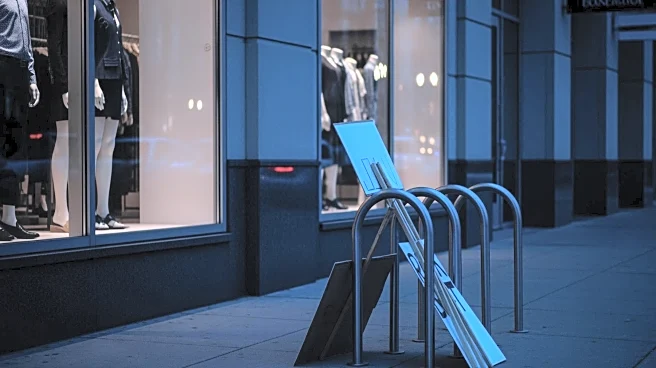What's Happening?
Consumer confidence in the U.S. has decreased, as reported by The Conference Board. The consumer sentiment index fell by 1.3 points to 97.4, with expectations for the next six months also declining. The proportion of consumers who believe jobs are hard to find has reached its highest level since 2021, and those expecting a decrease in income rose to 12.6% from 11.8% in July. Concerns over tariffs and inflation, particularly in food and groceries, have contributed to this decline. The average 12-month inflation expectation increased to 6.2% from 5.7% in July, reflecting growing anxiety about economic conditions.
Why It's Important?
The dip in consumer confidence signals potential challenges for the U.S. economy, as consumer spending is a key driver of economic growth. The anxiety over job availability and income prospects could lead to reduced consumer spending, impacting businesses and economic stability. The Trump administration's tariff policies are seen as contributing to inflationary pressures, which may further strain household budgets. Policymakers, including the Federal Reserve, face a complex situation as they navigate the dual challenges of a weakening labor market and rising inflation, which could influence future monetary policy decisions.
What's Next?
Economists predict that economic growth may pick up in the latter half of 2025, despite the current pessimism. The Federal Reserve is likely to consider these consumer sentiment trends in its policy deliberations, potentially adjusting interest rates to mitigate inflation and support employment. Businesses and policymakers will need to address consumer concerns to stabilize confidence and ensure sustainable economic growth.











